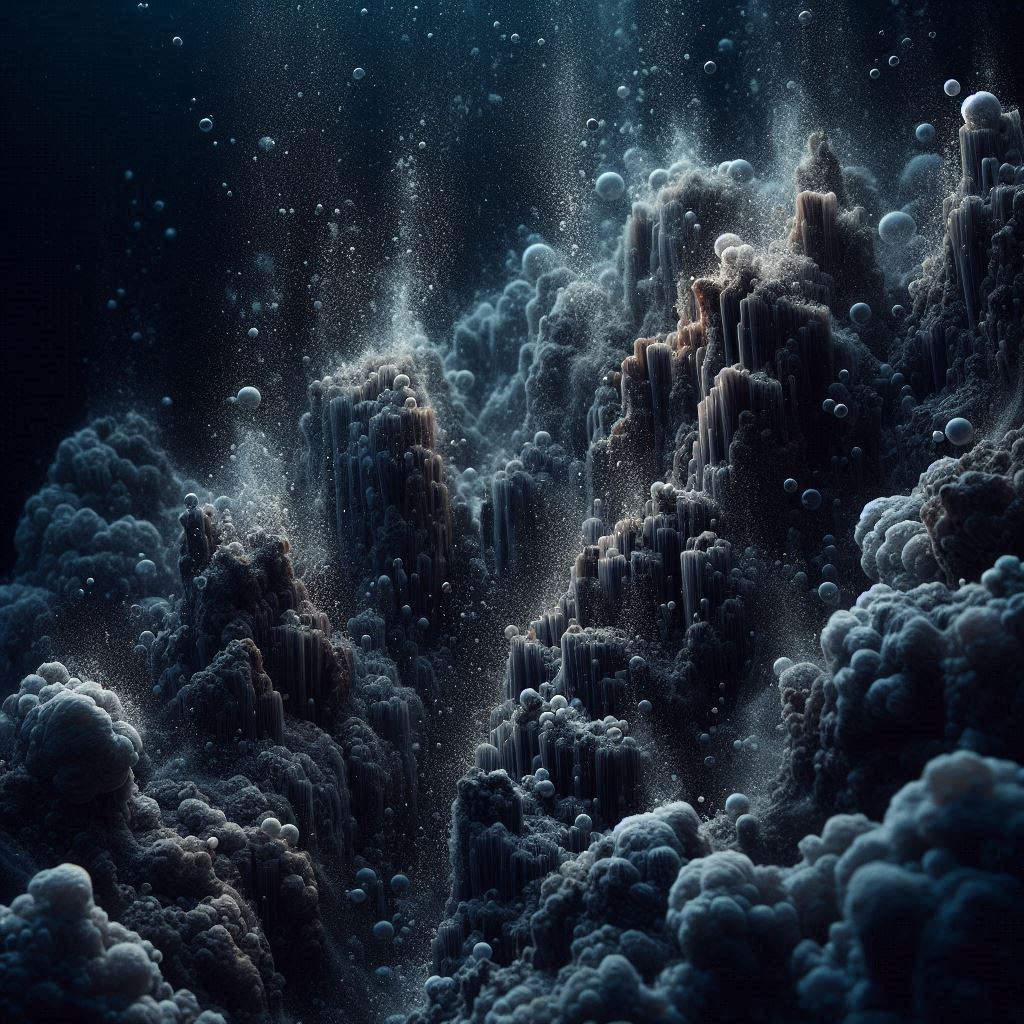- Empty cart.
- Continue Shopping
Dark Oxygen: The Deep Ocean’s Mysterious New Discovery

Imagine a world where oxygen, the lifeblood of our planet, is being produced in complete darkness—far away from the sun’s rays, deep in the ocean’s most hidden corners. Until recently, scientists believed that all the oxygen we breathe, especially the 50% produced by our oceans, came from marine plants like phytoplankton, which use sunlight to photosynthesize. But now, a new and groundbreaking discovery has turned that idea on its head: “dark oxygen” is being created in the ocean’s depths by mysterious lumps of metal on the seafloor.
This discovery is a revelation. It suggests that oxygen, the gas that fuels life on Earth, might be produced in ways we’ve never imagined, far away from the sunlight that powers almost everything we know about biological processes. This “dark oxygen,” named for the fact that it’s being created without any light, hints at entirely new mechanisms of oxygen production.
The deep ocean has always been a place of mystery—an alien world, largely unexplored, with vast trenches, strange life forms, and immense pressure. In these lightless regions, photosynthesis isn’t an option. Yet, scientists have discovered oxygen appearing in areas where sunlight cannot reach, suggesting something extraordinary is happening down there. The culprits? Strange, lumpy deposits of metal scattered across the ocean floor.
These metallic lumps—rich in elements like manganese and iron—appear to be sparking chemical reactions that, incredibly, result in the creation of oxygen. This means that the ocean, often called the “lungs of the Earth,” has a previously unknown way of producing oxygen, potentially contributing to the balance of gases in our atmosphere.
What does this mean for us? First, it challenges our understanding of Earth‘s oxygen cycle. It also raises important questions about how life could exist in extreme environments, both here and on other planets. If oxygen can be produced without sunlight deep in our own oceans, what might this mean for the search for life on icy moons or dark planets far from the sun?
It’s humbling to think that despite all we’ve learned, our planet is still full of surprises. The deep ocean, which covers most of the Earth’s surface, remains largely unexplored. With this discovery of “dark oxygen,” we’re reminded that there are still vast mysteries beneath the waves, waiting to be uncovered.
In the future, studying these deep-sea metal lumps could lead to new technologies, perhaps even offering insights into alternative ways of producing oxygen in extreme conditions. It could also help us understand how Earth has maintained its oxygen levels over millions of years, through natural processes we’re only beginning to grasp.
For now, “dark oxygen” remains a tantalizing new piece of the puzzle in understanding our world. The ocean is more than just a source of life—it’s a realm where nature’s secrets run deep, and where extraordinary phenomena like the creation of oxygen in the dark are waiting to be discovered.
Who knows what other wonders are hidden in the depths?
What the Dark Oxygen Discovery Means for Deep Sea Mining

Scientists have discovered something surprising: metallic nodules on the seafloor are producing “dark oxygen,” a type of oxygen that might change how we think about the origins of life on Earth. This discovery could also strengthen arguments against deep sea mining and potentially stop it before it starts.
The discovery was made in the Clarion-Clipperton Zone (CCZ), a large, flat part of the ocean floor between Hawaii and Mexico. Mining companies, like The Metals Company, plan to collect these nodules, but now we know they might be producing dark oxygen that supports deep sea life. This could be essential for the health of deep ocean ecosystems, including life forms we know about and others we have yet to discover.
Environmental groups like Greenpeace have long opposed deep sea mining, saying it could harm fragile ecosystems we barely understand. This new discovery reinforces their concerns. The timing is critical because world leaders are currently meeting in Jamaica to decide whether companies like The Metals Company can begin mining operations.
Greenpeace is urging governments to stop deep sea mining, especially now that we know the deep ocean might be a vital source of oxygen for the planet. Protecting the ocean’s biodiversity is more important than ever, as the health of the ocean is closely tied to the health of all life on Earth.
In the face of climate change and biodiversity loss, it’s clear that we need to protect nature in all its forms.


1
1